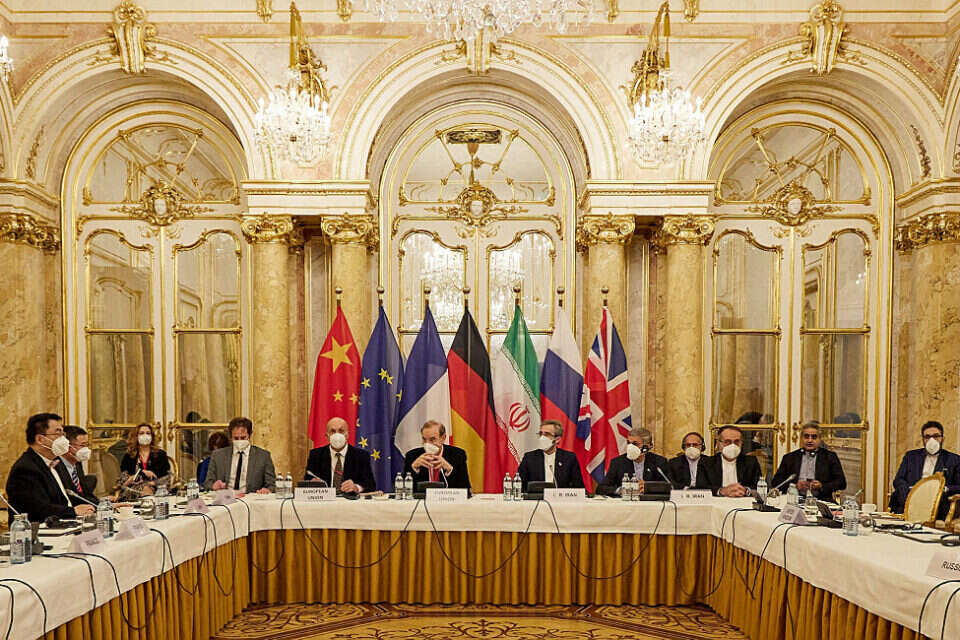The message sent from Tehran by Iranian Foreign Minister Hussein Amir-Abdullahian a few hours before the resumption of negotiations in Vienna between his country's delegation and representatives of the five powers on reviving the nuclear deal was very clear: all agreements reached in previous talks with Iranian president . Only two new drafts are currently on the table, raised by the government of incumbent President Ibrahim Raisi in recent weeks - worded on them, according to the minister's advisers, indirect negotiations are underway with the US administration. The main issue in the talks for Iran is the removal of all sanctions on Iranian oil exports, without any restrictions, and on the deposit of the payment for the oil in foreign currency in Iranian banks. The Iranians outright reject any threat from the West regarding deadlines close to the explosion of negotiations and make it clear that they will not give up their red lines due to some time pressure generated by the Americans and Europeans.
The eighth round of talks on reviving the nuclear deal with Iran, the third since the end of November negotiations under the government of hawkish President Ibrahim Raisi, opened today at the Coburg Palace in central Austria with a very low expectations. The European powers are, in fact, preparing the ground for a situation in which no progress will be made - let alone a breakthrough, and the need to reach an interim solution that will freeze the current situation and prevent further escalation, such as imposing new sanctions on Iran. Tehran, for its part, has signaled a willingness to settle for such a compromise, when it announced last weekend that it does not intend to cross the 60% threshold for uranium enrichment. However, Iran shows no willingness to back down from breaches of the agreement on its part, which have allowed it to advance its nuclear program in recent months - a declared precondition of the US administration to lift sanctions and refrain from imposing further sanctions.
Thus, while the head of the Iranian delegation for nuclear talks, Deputy Foreign Minister Ali Bagri Kani, returned to Vienna today and held separate consultations with the Chinese and Russian ambassadors, with the EU Foreign Secretary, and with the French ambassador - perceived by the Iranians as a "hard nut" in battle The Europeans convened in Tehran Foreign Minister Amir Abdullahian at a press conference in which he clarified his country's position: "The most important thing for us is to reach a point where Iranian oil can be sold easily and without obstacles.
We must be allowed to enjoy all the economic benefits (included in the original nuclear agreement from 2015) in the various sectors. "
That is, Tehran is demanding the complete removal of the draconian sanctions on the oil and banking sectors, imposed by the Trump administration and which have caused the most severe damage to the Iranian economy as a condition of any future agreement.
The place where the talks take place in Vienna, Photo: Reuters
The Iranian foreign minister also demanded the formation of an agreement on a mechanism to oversee the removal of sanctions imposed on his country and the receipt of guarantees to ensure the easing of sanctions. Iranian Foreign Ministry spokesman Sayyid Khatibazadeh made it clear that Iran would not agree to any arrangement beyond what was included in the original nuclear agreement and would not tolerate any claim for harm to benefits it was supposed to receive under that agreement. He added that his country was participating in talks to reach a "good deal" and Tehran hoped the other parties would take advantage of this opportunity.
While Western diplomats warned on the eve of resuming talks that there were only a few weeks left to reach a renewed agreement, the Iranians explained that they had returned to Vienna with a full desire to stay as long as needed and expressed hope that the other parties would be willing to negotiate the resuscitation agreement.
The head of the Russian delegation, Mikhail Ulyanov, who plays a key role in mediating between the parties, said the statements from Tehran were encouraging as well as the fact that the parties decided to resume talks at a very unusual time: between Christmas and the new civil year.
Ulyanov believes that an agreement can be reached by the beginning of February.
After preliminary consultations between the various delegations, representatives of the powers - Russia, China, Britain, France and Germany - met with the Iranian delegation for a first plenary session, while the Americans continued to observe the spectacle up close.
Were we wrong?
Fixed!
If you found an error in the article, we'll be happy for you to share it with us

